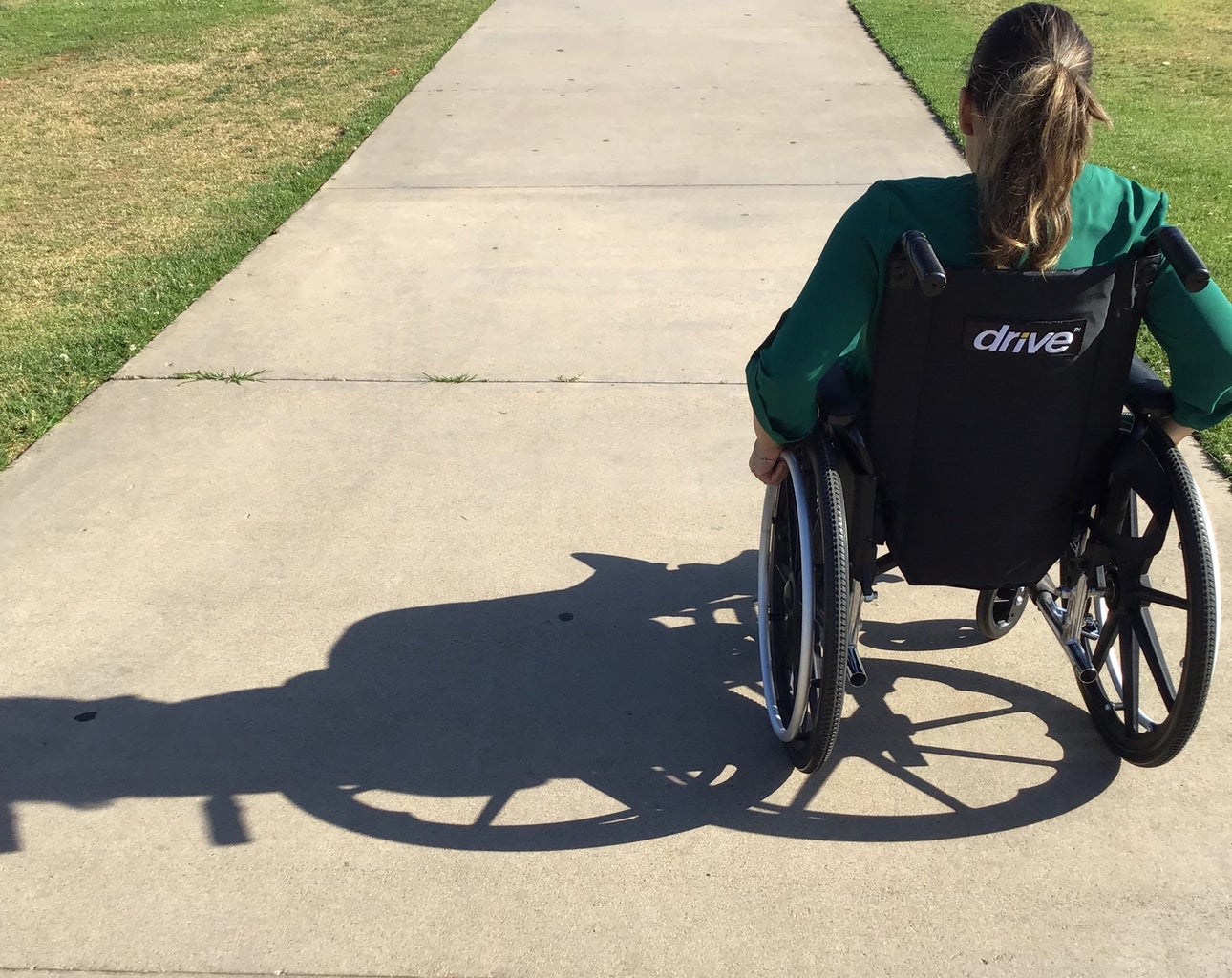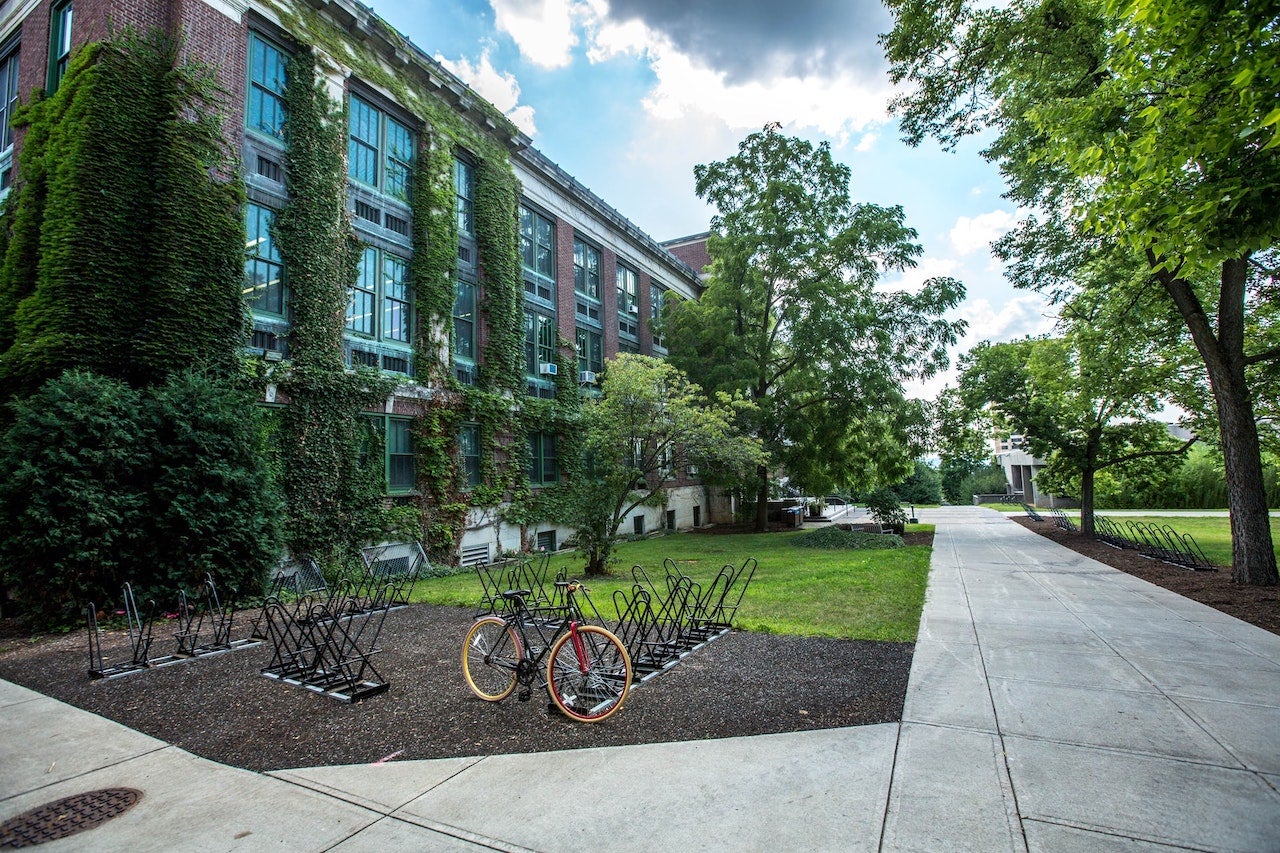With thousands of colleges across North America, many of which pride themselves on their efforts toward equity among students, students should be able to expect to receive accessibility accommodations without issue. It turns out, however, that accessible accommodations are out of reach for many college students.
According to Inclusivity City Maker, roughly 20% of college students attend college with a disability, and this statistic keeps increasing as college campuses become more accessible. However, do these colleges actively keep up with maintaining an accessible campus for their students? Accessibility can also play a major role in whether students can even attend certain schools at all. I had the chance to talk to some college students about their experiences with accessibility on their campus, and whether or not their college can and should do more to be more accessible for students.
Emma, 21, a third-year student at Western University, has had a generally positive experience with receiving accommodations for their academics, physical disabilities, and mental health. “I suffer from extreme anxiety and Western has so many resources for me to reach out to and get the proper accommodations,” they say. “Currently, I have accommodations that allow me to have extra days on assignments, I receive notes from other students, and I also have an academic support system for my anxiety.”
On the other hand, Alice*, 20, also a student at Western University, mentions that despite some of the accommodations students can receive, her school could still do more to be inclusive. “One thing I would change would be to have more accessibility to their Wellness Centre,” she tells Her Campus. “As of right now, students can only access wellness services by calling to make appointments, but the spots fill up so fast and more people suffer from phone anxiety so they find it harder to book appointments.”
Getting accommodations beyond surface-level offerings is proving to be an issue at other schools, too. Lola*, 20, a student at the University of Kansas, requires a note taker, extended examination time, and recorded lectures. But according to her, it’s not always easy to receive those accommodations because they depend on the compliance of individual professors. “Some teachers have been really great and others have been so hard to work with and won’t accommodate at all,” she says. “The school should be more strict with enforcing the accommodations policy with the teacher and don’t let them get away with not sticking to the rules. If a teacher doesn’t comply, then have a separate talk with the teacher and provide secondary help for the student.”
When it comes to students who require physical accommodations, the lack of assistance from universities can be even more burdensome. Camille, 22, a fifth-year student at Queen’s University, has a physical impairment that requires physical accommodations in campus buildings, which she says has been a challenge. “Essentially I needed all buildings to be accessible (i.e., no stairs, no heavy doors),” she explains. “I also needed the campus to shovel the path I take to class in the winter because a wheelchair doesn’t wheel very well when there is a lot of snow on the ground.”
Camille had positive and negative experiences on campus, and the lack of accessible buildings even affected her ability to enroll in certain classes. “There were a lot of mandatory or required classes I needed to take to graduate and I didn’t always have complete autonomy over which buildings I was in. The way I chose some of my classes were based on which building they were in. So when I was automatically enrolled in some classes, there were buildings that weren’t accessible or they enrolled me in three back-to-back classes that would have me running across campus, which just wasn’t possible. I tried, but would end up being late to class and be physically exhausted because I would be having to book it to class.”
When she turned to her accessibility advisor for a solution, the response was shocking. “The solution was for me to drop some of the mandatory classes I needed and take an extra semester so I could get all the requirements,” Camille says. “I didn’t think it was fair that they were asking me to enroll in a fifth year if I wasn’t planning on that because I wanted to finish my degree in four years. The issue isn’t taking extra time to finish my degree, but it should be a choice an individual makes, not a solution for a disabled student who can’t physically get from class to class.”
The onus was often placed on Camille herself to navigate inaccessible classrooms and buildings on a day-to-day basis. “I also experienced a time when I had a class on the second floor of the building and the only elevator was broken and didn’t post when it would be fixed,” she recalls. “That was a barrier to class that I wasn’t anticipating. If it wasn’t for my friends carrying my wheelchair up the stairs, then I wouldn’t have been able to attend class. I got my professor to also inquire about the elevator in hopes it would get fixed before my next class.”
Jackie, 21, who attends UMass Boston, had a similar experience to Camille because of an injury. “I sprained my ankle … and have quickly started to see how inaccessible our campus is for those using wheelchairs or canes,” she says. “The ground is uneven between most buildings and the elevators are frequently broken or out of order. Additionally, there are a ton of hills, and it’s incredibly hard to get anywhere with a sprained ankle.”
She says that one way schools can help accommodate their students more would be to “fix elevators and make them usable for students who very much need them,” making her frustration at the lack of progress clear.
College campuses may take more pride in their accessibility efforts than they should — at least according to the students who are on the receiving end. If you are a college student who requires accessibility accommodations, the Transition Resource Guide and the Americans with Disabilities Act website are great resources to help you discover your rights and plan your next steps with your college. Students, faculty, and staff who don’t require accommodations should also do their best to listen to those with disabilities and understand where they can step in to help and demand a change.
*Names have been changed.





